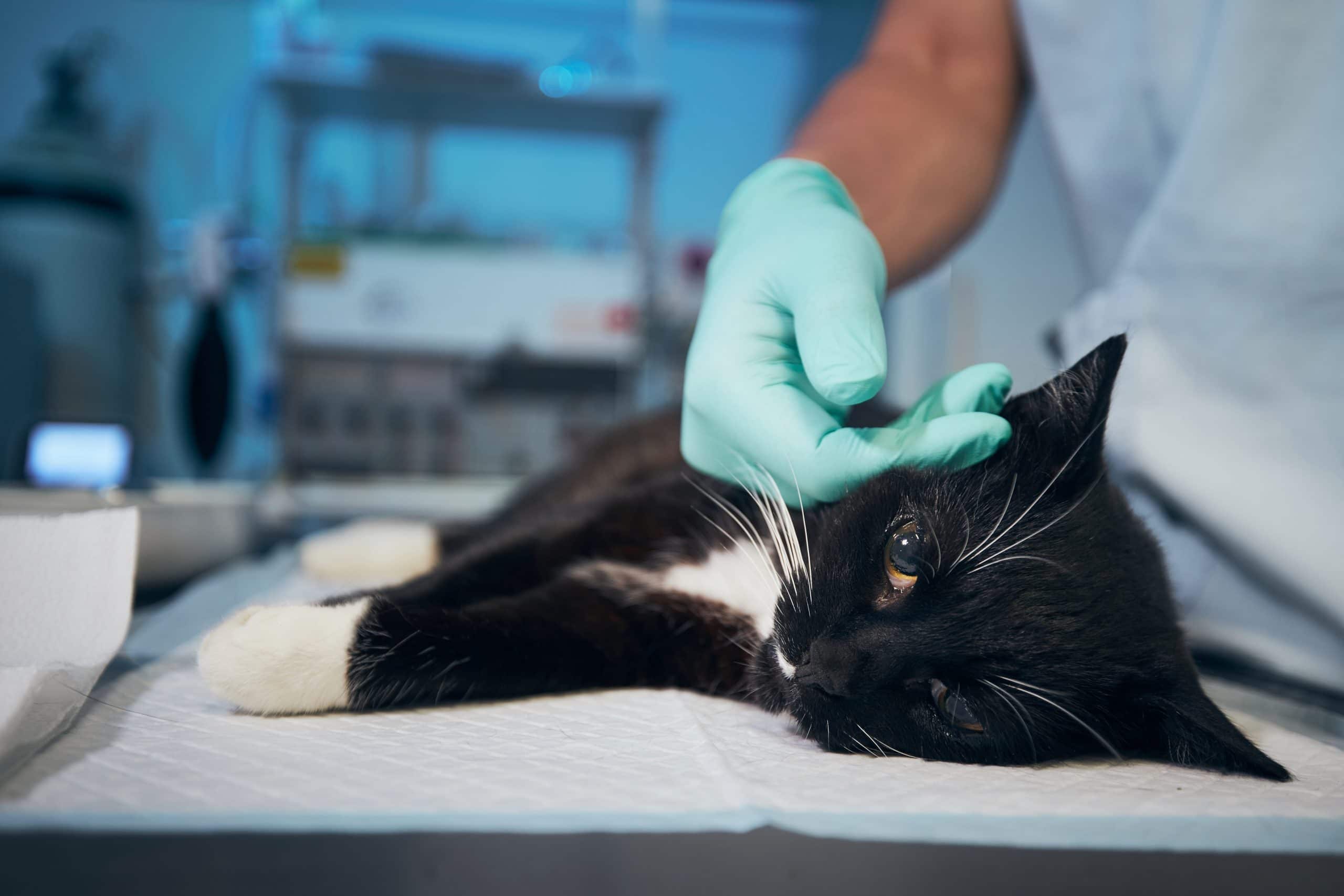
15 Sep Common Pet Illnesses Brisbane
Many people have felt a bit under the weather during the colder months. Your pet can get unwell too, so it’s important to know what to look out for. If your pet spends a lot of time outdoors or in the company of other animals, you’ll need to pay extra attention. Just like people, animals can pass their illnesses on to each other, leaving you with a sick animal.
Here are some common pet illnesses in Brisbane, and how to spot them.
Internal parasites
Even if they initially look fine, your pet could be harbouring nasty parasites. They don’t even necessarily need to be in direct contact with other animals – heartworms are transmitted by mosquitos, for example. Some symptoms to look out for are lethargy, collapsing, wheezing, and coughing. Your pet might lose weight, and not want to run and play as usual.
You shouldn’t wait for symptoms before you act – heartworms and other internal parasites can be difficult and costly to treat. Prevention is a far better option. Talk to your vet – you might be able to protect your pet with a yearly vaccination, an oral tablet, or a spot-on treatment.
External parasites
Fleas and ticks are the most common external parasites in Australia. Bites are irritating and painful, and external parasites can cause skin conditions, infections, and even anaemia. External parasites can be carried in by animals, so it’s important to guard against them to protect the whole family, as well as your pet.
You will notice fleas if your pet starts scratching, biting, and potentially losing hair. Ticks can be far more serious, and can include paralysis of the hind legs, vomiting, and a change in their vocal sounds. Fleas should be reasonably easy to spot, but you should go looking if you suspect a tick, focusing on creases of skin, the ears, and other out-of-the-way places a tick might hide.
Prevention is the best option for external parasites, and you can choose from collars, tablets, topical treatments, and more. If you do find parasites on your animal, there are treatment options available that can help rid your pet of nasty visitors. Don’t try to remove ticks yourself, unless you have a specialised treatment – if you crush their body, they can make your pet even sicker.
Kennel Cough
You might have picked up a cough over the winter, and your pet can too. Kennel cough is the animal equivalent of the common cold, appearing as a form of bronchitis that can cause inflammation in your pet’s windpipe. It’s very common for pets who are around other animals, such as in animal shelters or at the vet.
It’s generally easily treated with rest, water, and plenty of good food. In particularly severe cases, your vet might recommend antibiotics. There is also a vaccination available to prevent against kennel cough.
Vomiting and Diarrhoea
It’s not pleasant, but vomiting and diarrhoea mean your pets’ body is trying to get rid of something that is bothering it. In dogs, the cause could be parvovirus. Otherwise, it’s likely your animal has eaten something they shouldn’t, or picked up a bit of gastro. Vomiting and is not normally dangerous on its own, although you’ll need to be careful to avoid dehydration. If either symptom comes along with blood in their vomit or faeces, lethargy, weight loss, fever, or reduced appetite, it could be more serious, and you should get your pet seen by a vet.
Distemper
Canine distemper isn’t pleasant – a contagious virus, it is contracted by contact with an infected dog’s urine, saliva, or blood. It’s now rare in Australia, but there are sporadic cases. It can affect your dog’s whole system – their nervous system, the respiratory system, and the gastro-intestinal system. You might notice your dog sneezing and coughing, having difficulty breathing, with fever, possible seizures, and a discharge of mucous from the eyes. Luckily, there’s a vaccine that can help keep your dog safe – which is why staying up to date on vaccinations is so important.
Ear Infections
Just like humans, ear infections are common in animals – especially if they have spent a lot of time outdoors. It could be that a foreign object such as dust, dirt, or a small stone has become lodged in your pet’s ear, or it could simply be a spontaneous infection. Signs that your animal might have an infection include them pawing at their ears, as well as possible redness, fever, and discharge. Your vet will probably prescribe antibiotics if your animal has an infection. To prevent ear infections, make sure you regularly and thoroughly (but safely) clean your pet’s ears.
Lower Urinary Tract Problems (LUTP)
More commonly causing problems in cats than dogs, LUTP could be an indication of an infection, bladder stones, or cancer. You’ll notice that your animal attempts to urinate more frequently, but only produces a small amount which could be blood stained. If they are obviously experiencing discomfort while urinating and losing weight, it could be an indication of a LUTP. If you think your animal might be having bladder issues, you should take them to see the vet as soon as possible.
Common Pet Illnesses in Brisbane
Just like humans, there are plenty of ways your pet can become unwell. Of course, good general health is the best defence against any kind of illness. Keeping your pets clean, hydrated, and well fed will help them to stay happy and well. If you do run into any problems or if you are concerned about your pet’s well-being, don’t hesitate to contact your vet. Getting your pet some help early on can prevent the situation from escalating.
We all want to stay healthy, but for the inevitable times where your pets get sick, it’s important to get them good help as soon as possible. They may not be feeling their best, but they’re certainly lucky to have you!


No Comments